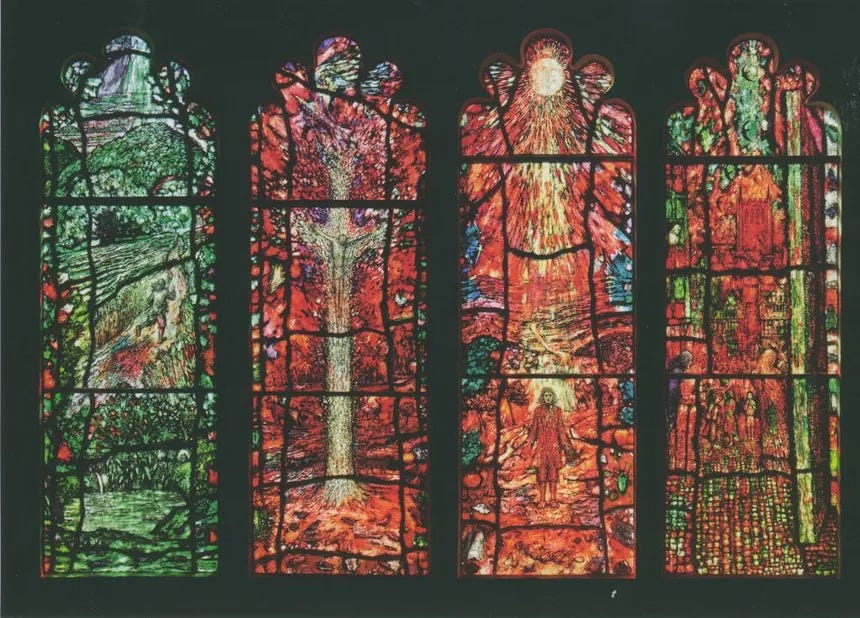I Within Did Flow With Seas of Life
On Preparation-Participation for and in the World to Come
Our movements are most times ungainly, loose-limbed and cumbrous. Yet we also dance. Dancing, we for a moment bring our slouching into grace, into another syntax than that which governs the prosaic language of our working bodies, habituated to sometimes uncouth necessities.
So also with speech. Our spoken vulgar tongue is halting, imprecise, circuitous. In poetry, our tongues are made to exercise themselves in the noble and demanding syntax of Paradise. These three stanzas from Thomas Traherne’s Wonder require from us an active generosity and labour of the heart; they make the soul to shake her furled up wings:
The skies in their magnificence, The lively, lovely air; Oh how divine, how soft, how sweet, how fair! The stars did entertain my sense, And all the works of God, so bright and pure, So rich and great did seem, As if they ever must endure In my esteem. A native health and innocence Within my bones did grow, And while my God did all his glories show, I felt a vigour in my sense That was all spirit. I within did flow With seas of life, like wine; I nothing in the world did know But ’twas divine. The streets were pav’d with golden stones, The boys and girls were mine, Oh how did all their lovely faces shine! The sons of men were holy ones, In joy and beauty they appear’d to me, And every thing which here I found, While like an angel I did see, Adorn’d the ground.
They stand above the pond of our vocabulary like fishing birds; they beckon to our minds like pretty girls to nervous boys. We do not speak or think like this, but Treherne’s verses give us a taste of what it might be like if we did.
And just as we grow tired dancing, and must relax our bodies into some more lugubrious posture, so in this fallen world is it almost impossible to constantly exert our speech into the elegance of poetry.
Taking the aforesaid into account, I can suggest in this way that poetry, and dance, are didactic. Not morally didactic, but gymnastically: they invite us briefly to sustain ourselves in higher and more perfect atmospheres.
Thus, poetry is an attentional, rhetorical, and aesthetic podvig (and dance has its own peculiar and beautiful agonies- just check out the training regimes of Georgian ballerinas). If one plans to climb some high peak, one’s lungs must be trained for thinner, sweeter air.
We must, here and now, prepare for the way that we shall have to move and speak among the kings and queens of Heaven’s City.





This was great! I love how you framed poetry and dance as Heavenly Languages. Wonderful insight.